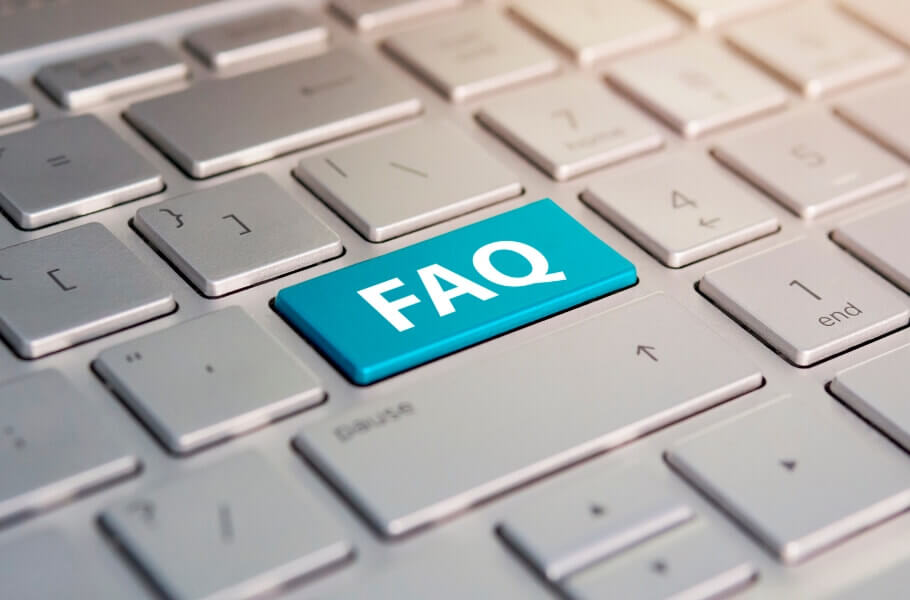Let your online business thrive with eCommerce SEO services
Describing the eCommerce landscape as “hypercompetitive” is an understatement.
According to recent data, a staggering 90% of online startup companies fail after the first 120 days. Why? While you might think a lack of operating capital or low sales could be the culprit, surprisingly, it’s not.
The two primary causes of these failures are, one, poor online marketing strategies (37%) and, two, lack of online search visibility (35%).
Here’s the lightbulb — Developing and maintaining a long-term and cohesive eCommerce SEO strategy prevents your online business from falling prey to those common obstacles. We tailor custom eCommerce SEO strategies for our clients to increase organic traffic, boost page rankings, and expand brand awareness.
Having trouble attaining your goals for web traffic and new visitors? We’ve got you covered.
Struggling to reach new customers and increase visibility among your target market? Yup, we can help you with that, too.
Ready to ditch your store’s clunky, outdated site design and upgrade to a sleek, modern aesthetic that converts? You’re in the right place.
With our eCommerce SEO services, you take all the weight off your shoulders, giving you more time to focus on running your business.

Our eCommerce SEO strategies and tactics
The world of SEO is dynamic and ever-changing. The tactic that was last year’s cash cow may produce absolutely zilch in the following year.
When it comes to your eCommerce SEO strategy, the “set it and forget it” way of doing things just won’t cut it. Your online store requires constant effort and attention.
We use a diverse range of SEO strategies and techniques to keep our eCommerce clients progressing, evolving, and thriving. You won’t find our team taking the easy way out and using cookie-cutter methods. Instead, we analyze every aspect of your business to tailor a unique, detailed strategy that fits your brand and delivers optimal performance.
Research
The first step of every good marketing and SEO strategy is in-depth research. We identify your brand’s target market and search intent, brainstorm high-volume keywords, and analyze your top competitors to understand the most effective SEO tactics for your particular industry. Using resources like Google Search Console and Analytics, we collect real-time data to leverage the most benefits for your business and help you gain the highest return for your investment.
Technical SEO
The technical SEO aspects of your eCommerce site directly impact its performance and success. We focus on building mobile-friendly, responsive, and lightning-fast websites that are easy for search engines to crawl and index and provide a superior user experience. Speed is critical — eCommerce sites that load within one second have a 3x higher conversion rate (3.05%) compared to slower-loading pages. By designing a sleek, intuitive, and easily navigable website for your online store that enhances user experience, you gain an additional boost in SEO performance.
On-page optimization
We take a meticulous, detail-oriented approach to optimizing every aspect of your eCommerce website according to best practices for on-page SEO, with the ultimate goal of a higher ranking. On-page SEO for eCommerce includes optimizing elements like keywords, meta descriptions, page titles, header tags, product and category pages, content, images, linking and code structure, and more. The easier it is for crawlers to organize your content, the higher they rank your website in the results pages.


Content marketing
You may think content marketing is geared mainly toward blogs, but that’s not the case. The quality of content on your eCommerce site can be a make-it-or-break-it factor affecting your success. We utilize people-first content that’s helpful, engaging, relevant, and unique, which positions your brand as an authority and establishes trust and credibility. Plus, we create all our content using SEO best practices to give your search engine ranking a sweet boost.
Link building
A strong, high-quality link-building profile contributes to the trustworthiness, credibility, and reputation of your brand. We only use white hat link building to position your business as an industry expert and reliable source of information using tactics like guest posting, link bait, HARO link building, and the skyscraper technique. Every link we gain for your site is a vote of confidence and benefit to your SEO score.
Local SEO for eCommerce companies
eCommerce businesses already know the vital importance of developing trust, authority, respect, and goodwill in the local community. Our team leverages the most effective local SEO techniques to support your eCommerce company. These include claiming your GBP (Google Business Profile), managing reviews and reputation, building local links, and social media marketing.
Tracking and reporting
With advanced tracking tools and data analytics, we evaluate key metrics and performance to glean crucial insights and information from your site’s eCommerce SEO strategy. Some of the tools we use include Google Analytics, Google Search Console, Surfer SEO, Ahrefs, and Agency Analytics. Learning what tactics are the most effective allows us to optimize your site for maximum results and ROI.

Our SEO process
Our eCommerce SEO agency has fine-tuned our strategy development process to perfection. We follow the same basic formula as a foundation, although each client receives a comprehensive, custom-built SEO strategy based on their specific brand and products.
As we collaborate with you during our 7-phase development process, you can expect complete transparency and expert support every step of the way. Compared to traditional SEO, eCommerce strategies require a slightly different approach and tactics.
From market research and reporting to content creation and site structure, our SEO specialists have the raw talent, industry expertise, and methodical mindset necessary to excel in this area of eCommerce marketing.
Phase 1: Onboarding
First is your initial consultation, where we gather information, learn about your brand, and determine the project scope and details. We genuinely care, and we always take the time to sit back, listen to your needs, and learn as much as possible to serve you better.
Next, your project manager gets to work. You’ll have a Google Drive for asset storage, a Project Tracker spreadsheet for efficient organization, a Gantt chart for time management, and a Project Journal for documenting and recording the process. You’ll also fill out a Discovery Questionnaire to help us define your overall goals and expectations for your business.
Phase 2: Research
Our team of SEO specialists performs detailed research to tailor your SEO strategy in line with your brand and its goals. The first step is an intensive analysis of your industry’s top competitors, including their site structure, usability, techniques, performance, backlink profiles, content gaps, and more.
By evaluating your competitors, we can discover if your site has any vulnerabilities and identify opportunities where you can gain an edge. Researching keywords and topic clusters is also essential, as these factors have direct and tangible effects on your organic traffic numbers. We dig deep into your target market, defining the ideal customer persona, demographics, search intent, and ways we can reach more potential customers during each part of the sales funnel.
Phase 3: Technical SEO fixes and monitoring
The technical structure of a website is the beating heart of every eCommerce SEO strategy. Search engines like Google and Bing reward sites with a structured hierarchy and streamlined code, as they’re easy for crawler bots to understand and index.
Post-launch, our team monitors your site’s technical performance, optimizing URL paths, internal links, framework, HTML, page speed, and much more. We also check on your core web vitals (i.e., cumulative layout shift, first input delay, etc.), which impact your ranking in the search engine results pages (SERPs).
Phase 4: Reporting and analysis
As we continue to monitor and measure your SEO strategy, we collect vast amounts of real-time data from valuable resources like Google Search Console, Ahrefs, Google Analytics, and more. Our team analyzes and sorts all that information, pinpointing the most valuable insights and patterns and poring over the data in search of potential opportunities you can use to gain an edge over your competition. Then, we break it down even further and create a detailed, straightforward report that you can easily understand, even if you don’t know much about SEO.
We skip the technical jargon, using simple language to give you our professional assessment, recommendations, and actionable advice to optimize your strategy to maximize future performance. Plus, you gain access to our intuitive SEO dashboard, which lets you log in any time you want to check your status, view reports, and evaluate key performance indicators to benchmark your progress.


Phase 5: Monthly content creation
Content creation is one of the most imperative — and challenging — aspects of managing a successful SEO strategy, particularly for eCommerce brands. While you might think consumers don’t place much importance on website elements like product descriptions or your brand’s “About Us” page, we know better.
You’ll work closely with our marketing specialists, who focus on creating high-quality content that’s SEO-friendly, helpful, and optimized not just for keywords but for driving more organic and local traffic.
Our SEO agency creates content in all formats, including service and product pages, blogs, social media, email, and more. You can count on us to deliver superior-quality content every month that highlights the best features of your brand and contributes forward progress towards achieving your overall goals. For our eCommerce clients specifically, we create content like FAQs, how-to blog posts, a glossary page, product descriptions, new launches, customer testimonials, webinars, and more.
Phase 6: Monthly link building
Just like SEO, the process of link building is lengthy and complex. While the quality content we create for your eCommerce store contributes to the long-term success of gaining organic links, our team goes the extra mile to hasten the process. We use a wide range of white hat tactics, including guest posting, link bait, HARO, link insertions, skyscraper link building, resource pages, broken link building, and more.
Link prospecting is a definite challenge, but we leverage cutting-edge resources like keyword research, competitor analysis, anchor text distribution, and SEO reporting. These tools facilitate the process and help us develop a strong foundation for your site’s backlink profile. Even better, you get comprehensive support from a dedicated account manager who is ready to answer any of your questions or concerns.
Phase 7: Improve and iterate
eCommerce SEO is dynamic, which means that your strategy must adapt and evolve with the frequent algorithmic changes and shifting market trends. Here’s where our thorough data collection and analysis pays off — we use your site’s key performance indicators and metrics to determine its progress and which tactics are the most successful.
Once we identify the areas where your strategy needs improvement, we eliminate the weak spots to bolster performance and deliver maximum results and ROI. By remaining current on the latest ranking factors, we can keep your strategy as relevant as possible and continue boosting your rankings as high as possible.
However, we know that increasing traffic and your page ranking doesn’t necessarily mean you’re boosting profits or driving growth. Instead, we optimize your strategy to focus on the tactics that generate the best leads and most conversions.

Frequently asked questions about eCommerce SEO strategies
What is an eCommerce SEO strategy?
An eCommerce SEO (search engine optimization) strategy is a combination of tactics and techniques that aim to increase page ranking, organic traffic, visibility, lead generation, and conversions for a brand’s website and online store. The ultimate goal is to attain a higher ranking on the SERPs (search engine results pages) to expand awareness, gain more customers, and make more sales.
What are the best tools for eCommerce SEO?
The best tools for leveraging an eCommerce SEO strategy include Ahrefs, Google Analytics, Google Search Console, Surfer SEO, SEMRush, and Google PageSpeed Insights. However, your specific choices may vary based on the needs and goals of your online store.
What is the difference between SEO and eCommerce SEO?
Traditional SEO and eCommerce SEO utilize many of the same tactics and techniques to optimize website performance. However, the primary difference lies in their objectives. eCommerce SEO aims to increase the visibility of a brand’s website to attract a wider range of potential customers and increase sales.
Conversely, the primary purpose of standard SEO is to boost the ranking of a website in the SERPs and improve brand awareness. In addition, eCommerce SEO often uses different techniques, like product optimization.
Is SEO better on WordPress or Shopify?
Both WordPress and Shopify SEO have their own unique advantages and drawbacks for eCommerce website owners. Shopify is the ideal choice for beginners as it’s easy and straightforward to set up and use. Plus, it’s a hosted solution that eliminates the hassle of site maintenance or security updates. On the other hand, WordPress is the better choice for larger-scale eCommerce sites and web designers with more experience. WordPress offers far more powerful tools for blogging and publishing.
How do I get more traffic to my eCommerce website?
The best way to drive more organic traffic to your eCommerce website is by implementing a comprehensive SEO strategy. Examples of effective SEO tactics for eCommerce sites include on-page optimization, keyword research, technical SEO, content marketing, and link building. However, these types of SEO techniques won’t produce instant results. You may want to consider partnering with a professional eCommerce SEO agency that can build a custom strategy for your brand and speed up the process to help you achieve faster results.


How do you choose an eCommerce SEO agency?
The best eCommerce SEO agency will have industry experience, a proven track record, and innovative resources and tools that can drive growth and success for your brand. While eCommerce SEO isn’t easy, working with experts can help you get the most out of your marketing budget.
As the marketplace for online shopping is fiercely competitive, carving out a strong presence for your brand has become more difficult than ever before. Look for an agency that offers a diverse range of eCommerce SEO services to help your brand, like technical SEO, web design, branding, content marketing, link building, data analytics, and more.
What is unique about Connective Web Design’s approach to eCommerce SEO?
Connective Web Design leverages a range of innovative and effective tactics tailored to each client’s needs. Their approach is dynamic, avoids cookie-cutter methods, and focuses on creating a unique, detailed strategy that fits your brand and delivers optimal performance.
How does Connective Web Design ensure their eCommerce SEO strategies are effective?
They begin with in-depth research to understand your brand’s target market and search intent, followed by a meticulous approach to technical SEO, on-page optimization, content marketing, and link building. Their strategies are data-driven and constantly adapted to the dynamic nature of SEO.
What kind of research does Connective Web Design conduct for eCommerce SEO?
Their research includes identifying target markets and search intent, brainstorming high-volume keywords, and analyzing top competitors. They use tools like Google Search Console and Analytics for real-time data to leverage the most benefits for your business.
Can Connective Web Design improve the technical SEO of an eCommerce site?
Yes, they focus on building mobile-friendly, responsive, and fast-loading websites, which are crucial for search engine rankings and user experience. They ensure your site is easy for search engines to crawl and index.
What does Connective Web Design’s content marketing for eCommerce involve?
Their content marketing strategy is not limited to blogs but extends to every aspect of your eCommerce site. They create people-first content that is helpful, engaging, relevant, and unique, positioning your brand as an authority and establishing trust and credibility.
How does Connective Web Design handle link building for eCommerce sites?
They use white hat link-building techniques like guest posting, link bait, HARO link building, and the skyscraper technique. This approach helps position your business as an industry expert and enhances your SEO score.
Does Connective Web Design offer local SEO services for eCommerce companies?
Yes, they leverage effective local SEO techniques, including claiming your Google Business Profile, managing reviews and reputation, building local links, and social media marketing, which is vital for developing trust and authority in the local community.
What kind of tracking and reporting does Connective Web Design provide for eCommerce SEO?
They use advanced tools like Google Analytics, Google Search Console, Surfer SEO, Ahrefs, and Agency Analytics for tracking and reporting. This helps evaluate key metrics and performance, providing insights for strategy optimization.
How does Connective Web Design’s SEO process work for eCommerce clients?
Their process involves a 7-phase development process, starting with onboarding and research, followed by technical SEO fixes, reporting and analysis, monthly content creation, link building, and continuous improvement and iteration of the strategy.
What should I consider when choosing an eCommerce SEO agency?
When choosing an agency, prioritize those with industry experience, a proven track record, and access to innovative resources and tools. An ideal agency should offer a wide range of services, including technical SEO, web design, branding, content marketing, link building, and data analytics. Additionally, look for an agency skilled in using PPC for e-commerce, as you might use it in the future.







